Recently, I got an email from a reader asking me how I manage to not feel guilty when indulging in the foods I love. She had recently been diagnosed with an autoimmune disease and was trying to figure out what diet was right for her without turning her life completely upside down.
It wasn’t an easy note to answer. Because there’s no simple antidote to guilt and food shame, otherwise I would surely write you a how-to on the subject. I find that the most useful answer is knowing you’re not alone in feeling it.
If you’ve read The Wellness Project, then you know it took me far longer than the year at hand to get my healthy hedonism mindset under control. There were so many should not’s when it came to the diet piece. So many contradictions. So much confusion.
When I cross-referenced the prevailing anti-inflammatory diets, the no-no foods listed on my yellow legal pad included the trio from my vice detox—alcohol, caffeine, and sugar—along with the big eight allergens: dairy, wheat, eggs, tree nuts, peanuts, shellfish, fish, and soy. Some recommend no eggs, seeds, beans, legumes, or grains of any kind.
Many only advocate animal protein if its wild, grass-fed, free-range or organic. And others said no animal protein at all. Add nightshade vegetables (tomatoes, peppers, potatoes, and eggplant) and cruciferous vegetables (broccoli, cabbage Brussels sprouts and, yes, kale) for thyroid sufferers and it starts to feel like all that’s left are organic blueberries not flown in from Chile.
One of the flagpole diets I came across was AIP, otherwise known as Autoimmune Paleo. The books that promoted it unequivocally said that all autoimmune peeps would benefit.
While knowing that most autoimmune diseases are more alike than different, I struggled to see how so much restriction could be necessary for everyone. And then inevitably felt guilty about the food groups I didn’t manage to eliminate.
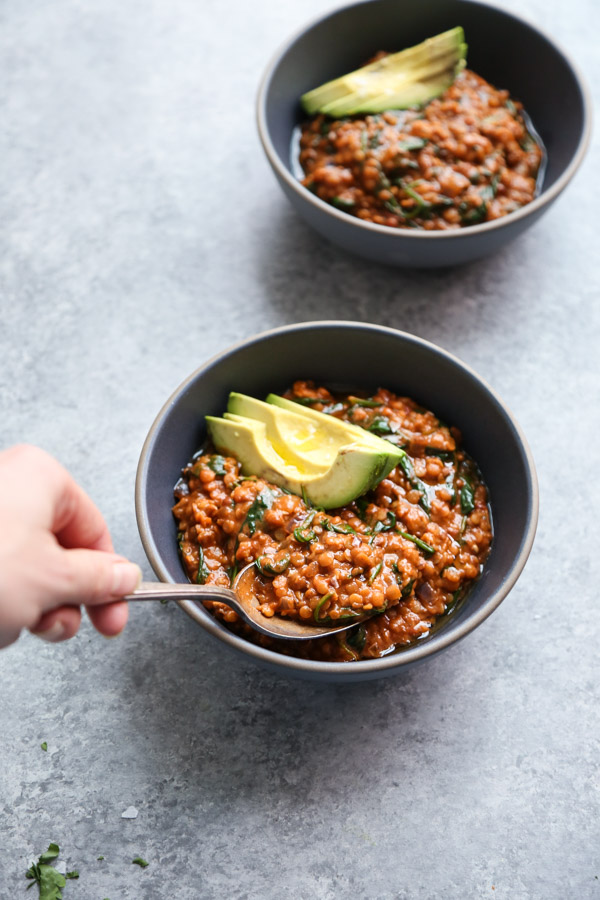
If you’ve been wondering about AIP or found yourself confused about who falls under its umbrella of efficacy, I hope you’ll give this post a read!
Jill’s approach is very similar to my own in the 4 Weeks to Wellness Program. For those looking for some support trying out an elimination diet, finding your trigger foods, or slowly on-boarding to a healthier lifestyle, I highly recommend joining me for the fall session!
Enrollment is officially open. You can find out more here.
With health and hedonism,
Phoebe
Is AIP The Best Diet for Hashimoto’s Thyroiditis?
If you’ve been tuned into the thyroid and Hashimoto’s (autoimmune hypothyroidism) community, you’ve likely heard of (or tried?) a Paleo or Autoimmune Paleo diet (AIP).
There are varying twists, but generally, with Paleo, you’re eating what’s believed to be what our ancestors ate: meat (grass-based/pastured), fish, vegetables, fruits, nuts, seeds, herbs, spices, eggs, unrefined coconut and olive oil, and animal fats like ghee, lard, and tallow. According to some, fruit is off limits. Others only support eating berries.
Most notably, the paleo lifestyle excludes grains (including corn) and legumes (including soy), dairy (although some allow grass-fed), sugar, caffeine, and oils derived from seeds and grains, which can be high in inflammation-promoting Omega-6 fatty acids. Some claim no eggs and others say no starchy vegetables because they can’t be eaten raw.
An AIP diet, often recommended for those with autoimmune conditions, is similar to Paleo, but in addition to the above exclusions, eschews nuts, seeds, eggs, dairy, nightshade vegetables, and generally, fruit.
These diets have become the “prescription” for any manifestation of autoimmunity, but may not be the answer for everyone.
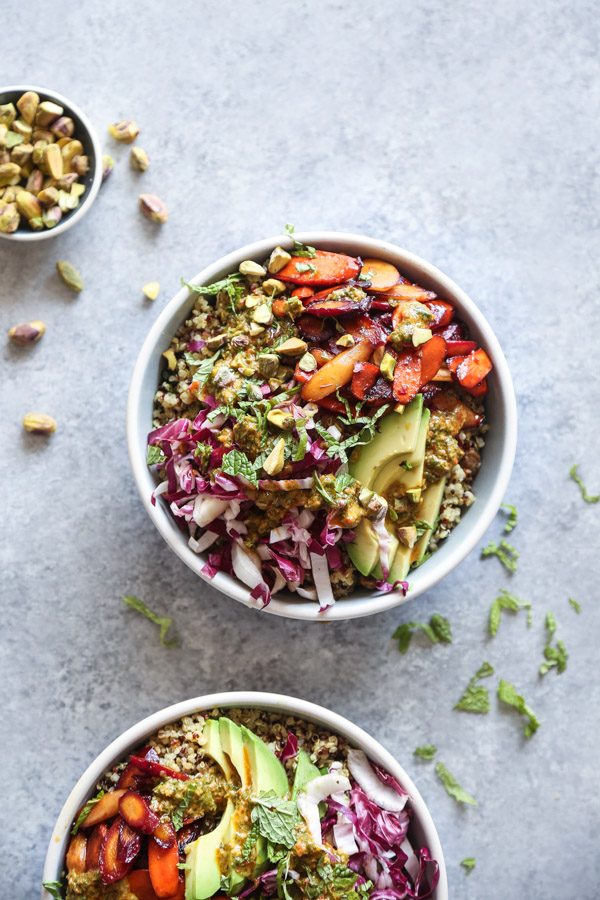
I do have some “restrictions” around grains and legumes, which has always been to largely limit flour-based products and eat true whole (intact) non-gluten grains, in moderation, because it’s true that a diet heavy in grains can be inflammatory and lead to weight gain and blood sugar issues.
Legumes/beans are a great source of plant-based protein, but I recommend not making legumes the sole protein of any meal, unless you can truly handle them without digestive distress. Even some who don’t have autoimmune conditions can have a difficult time digesting legumes (i.e. those with SIBO or IBS who may find relief on a low FODMAP diet).
My Essential Thyroid Cookbook contains chapters called “In Defense of Grains” and “In Defense of Legumes” that highlight the research of Justin Sonnenburg, PhD and Associate Professor of Microbiology and Immunology at Stanford and the author of The Good Gut, co-authored by his wife Erica Sonnenburg, PhD. They’ve been trailblazers in discovering how the fiber in grains and legumes improves the health of our gut microbiome, our digestive “mini ecosystem.”
Likewise, Dr. Susan Blum, author of The Immune System Recovery Plan, regularly mentions quinoa, amaranth, millet, teff, buckwheat, various types of rice, and also legumes as part of her healing program.
Just in the last year or so, I’ve witnessed many functional medicine/functional nutrition experts sing the praises of moderate intake of properly prepared grains and legumes.
AIP Isn’t For Everyone
I was diagnosed with Hashimoto’s in early 2008. At that time, the popularity of the Paleo diet hadn’t crested.
Given that 70-80 percent of our immune system is in our digestive tract, I did the gut-healing Elimination Provocation diet—a version similar to the one I share with my clients today. It’s a temporary diet and excludes nuts—but not seeds, grains, or legumes, with the exception of peanuts (which are technically legumes) and soy (also a legume).
Within a few months, my Hashimoto’s was managed—without the use of thyroid hormone replacement drugs. Over those next couple of years, prior to the popularization of the AIP diet, the vast majority of my clients had the same success—plummeting antibodies and alleviation of their hypothyroid/Hashimoto’s symptoms.
Considering this, it’s difficult, in my opinion, to rationalize a highly restrictive diet in all circumstances, for everyone with autoimmunity.
I prefer a flexible Paleo diet or a “Paleo template,” in the context of the Elimination Provocation diet. Flexibility is key—it gives people more of a feeling of control and “I can do this” vs. “I have to do do this.”
Stress = Antibodies
Many who’ve tried strict Paleo and/or AIP diet have expressed feelings of stress and frustration at the highly restrictive nature of these diets—and some have seen increased antibodies, worsening of symptoms, and confusion about how long to eat this way. (I worked with many of these “AIP refugees,” as I call them.)
Some thrive on (and love) the AIP diet and I’m not here to disregard its merits! But often, it’s a two-steps-forward-two-steps-back situation. The stress that ensues—at least for some people—isn’t conductive to the healing that needs to take place.
There’s enough evidence showing that stress increases antibodies. It’s even said to be a trigger for the onset of autoimmune diseases. According to Dr. Mark Hyman, “Stress worsens the autoimmune response.”
While some may be directly affected by grains and legumes, others can get their autoimmunity managed while continuing to eat small amounts of these foods—as long as other dietary triggers are investigated vis a vis an Elimination Diet.
At the beginning of this post, I said that I see some merit in an AIP diet right out of the chute in some circumstances. In addition to the foods excluded in the Elimination Provocation diet, I recommend the exclusion of grains, legumes, and seeds, in two circumstances: when the symptoms of autoimmunity are so painful and distressing as to cause life-altering circumstances or when a simple Elimination Diet hasn’t proven successful.
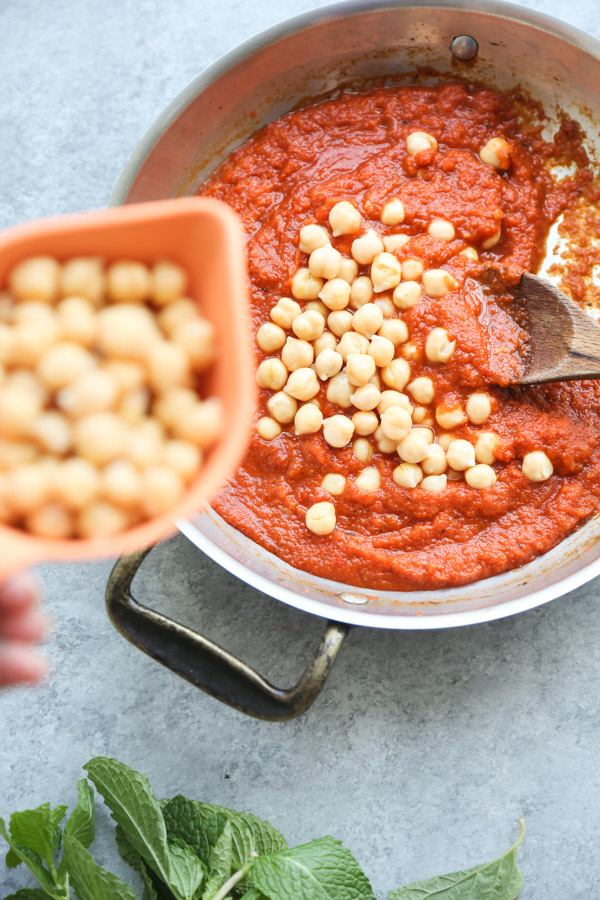
Hopefully you can see that I’m not anti-AIP. Given that there are equally effective and also flexible approaches to gut healing and immune modulation that tend to dovetail more easily with our busy lifestyles, I feel that it’s in many people’s best interest to start with a less restrictive approach, which is also conducive to sticking with the healing protocol and getting the results wished for!
If you are unsure about where your Hashimoto’s fits in on the autoimmune spectrum, it’s important to get a full thyroid panel that includes TPO antibodies. If your doctor won’t order anything beyond TSH, I’d recommend taking matters into your own hands with the Paloma at-Home Thyroid Test. You can get $30 off with my code, PHOEBE.
Jill Grunewald, HNC, Functional Medicine Certified Health Coach, and founder of Healthful Elements, is a thyroid health, Hashimoto’s, and alopecia (autoimmune hair loss) specialist and co-author of the #1 best selling Essential Thyroid Cookbook, of which this post is adapted from (the chapter, “Why This is Not Another Paleo or AIP Cookbook”).
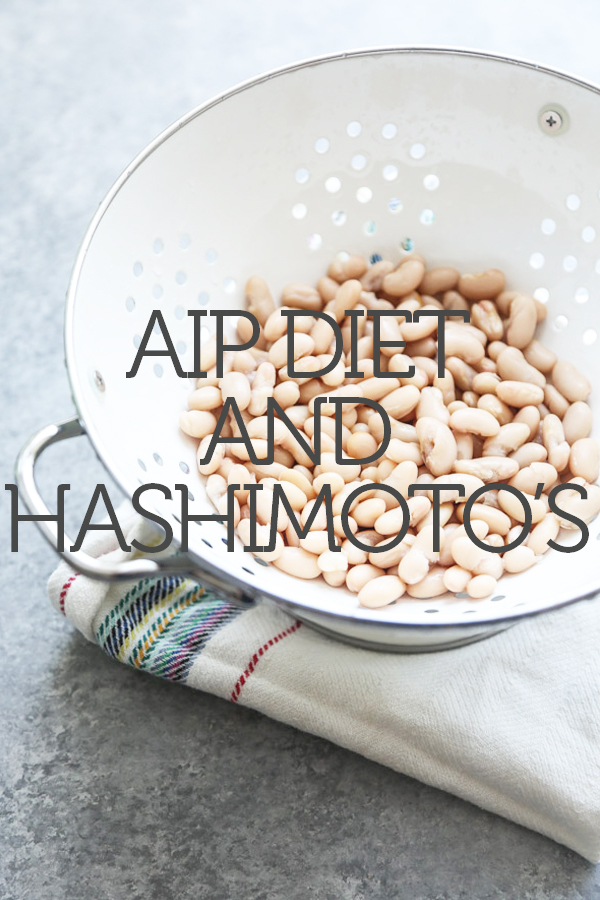
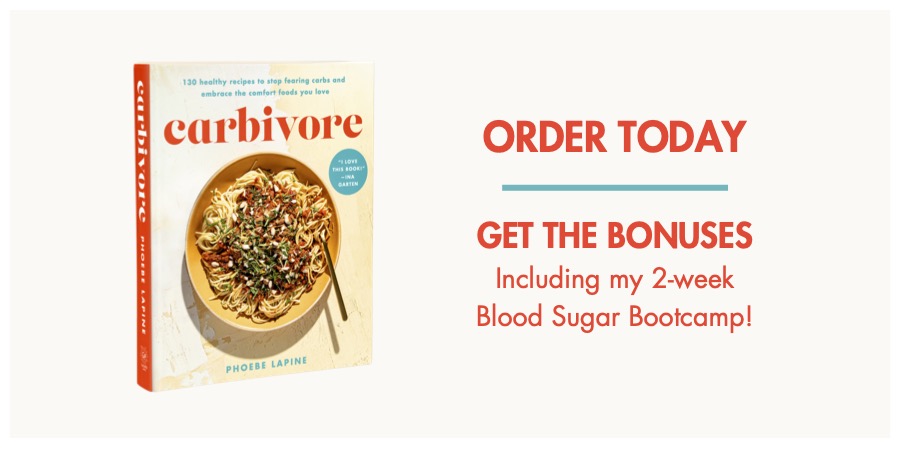
I have celiacs, hashimotos, and mthfr. I struggle with IBS-C, gastroparesis, SIBO, fatigue brainfog, fibromyagia and gallbladder issues. I have done AIP but if is crazy restrictive. I have done mostly elimination of food. I have been off gluten, dairy, and soy for years but still had issues. So now I am on Paleo which seems to have helped. I went off sugar and use honey and maple syrup sparingly. I can not do low carb or keto diets. So no more of the above issues on Paleo. I didn’t give up coffee but bullet proof coffee agrees with me more but would like to give it up. I have tried chicory and green tea. I was diagnosed 8 years ago. I had high blood pressure, diabetic, chronic infections ears, nose and lungs, joint pain, swollen head to toe, rash DH- celiac rash, asthma would have to be on steroid when sick, depression, anxiety, severe abdominal swelling constipation, and sores in my mouth.
Thank you for this. I like the Chris Kessler quote. I was diagnosed with Hashimoto’s this week. Everyone told me to go gf and to do the AIP diet. My doctor told me I don’t have to worry about any of that. I’ve been dreading the thought of restricting my food again. Last July, I developed idiopathic angioedema and I mostly starved for almost two months. Everything I ate caused lip, tongue, and sometimes throat swells. I couldn’t brush my teeth or at times even rest my face on a pillow. I ate nothing until I figured out I could have pedialyte and occasionally could tolerate cream of wheat or cream of rice. That’s it. Fresh fruits and veggies were my biggest trigger. They still bother me at times. My tongue is still swollen most of the time, but I haven’t had a throw swell in a while. I think too much wheat, bread, bothers me, but I don’t ‘think gluten matters for me. Eggs helped me gain strength again. I was severely anemic.
I’m willing to test out some foods. I like this take and will keep browsing around the blog.
Thanks for this post and I do agree with much of what you are saying. Context is so important and simply saying everyone with an autoimmune disease should try AIP is missing the human in front of them.
Didn’t know if you had seen this prior but wanted to share our first study with AIP and Hashimotos.
https://www.cureus.com/articles/18455-efficacy-of-the-autoimmune-protocol-diet-as-part-of-a-multi-disciplinary-supported-lifestyle-intervention-for-hashimotos-thyroiditis
Thanks for your thoughtfulness
thank you for sharing!
The Autoimmune Protocol Diet (AIP) is also designed to be a TEMPORARY elimination diet. By eliminating many food groups initially (for about 30 days) it helps the intestines time to heal. Then you REINTRODUCE foods that you would still like to eat, one by one, using controlled reintroduction techniques, to see if your body has issues with that food. Then you can determine which foods are the absolute best for YOU.
Thank you for sharing. I already eat pretty healthy yet I was recently told I have Hashimotos to make things worst I am pregnant. The simple idea of having such a restricted diet has caused so much stress on me these past two weeks I can no longer feel at peace no matter how much I try. I don’t understand why this is happening to me if I normally eat healthy ( even before I was told I had anything) could it be that I was extremely stressed And depressed the first 4 months of my pregnancy?
What’s even worst is that I don’t have any symptoms. The only reason I asked my doctor to check me was bc I was feeling cold more often than usual.
I have Hashimoto’s and after seeing so many claims that the AIP is basically a cure-all for autoimmune conditions, I gave it a go. I stuck with it for 3 months and then proceeded to do reintroductions. None of the taboo foods caused problems for me and now I eat a balanced, varied diet with no restrictions. Also, I feel better now than I had for years eating gluten-free. Food has become fun again. Part of the issue with ultra-restrictive diets is that they cause stress, and stress can trigger autoimmune flares – in my opinion, way more than any of the “bad” foods banned by AIP proponents. I wonder how many failed reintroductions are due to flares from stressing over wrongfully-demonized foods? Not to say some people don’t react poorly to certain foods, but I think restrictive dieting has gone way to far. The internet is rife with dietary dogma and always seems to lead to someone with a book or product to sell.